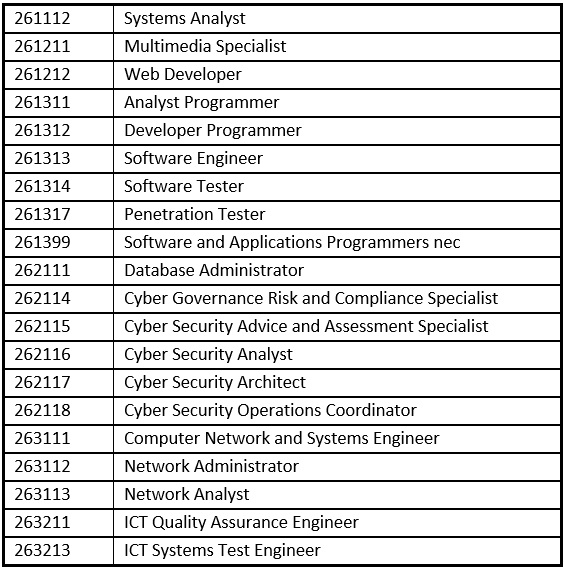In an effort to boost labour shortages in key areas, the government is extending the length of time migrant tech graduates of can stay and work in Australia.
Migrant graduates who have studied specific tech courses – including cyber security, database administration, and multimedia – at an Australian university will be eligible for extended ‘Post-Study Work Rights’ from 1 July 2023.
The graduates will be able to stay in Australia for a further two years.
Select bachelor degree graduates will be able to stay from the current two years to four years; select Masters degrees graduates from three years to five years; and all Doctoral degree graduates – regardless of field of study – are eligible to stay six years from the current four.
The changes were made following the Jobs and Skills Summit held last September, in consultation with various educational institutions.
In a joint statement from Home Affairs and Cyber Security minister Clare O’Neil and the minister for Education Jason Clare, said the move is a “practical change that will increase the availability of a well-trained and highly capable workforce to help ease current pressures.”
The full list of 20 IT roles where graduates are needed are as follows:

The list includes the additional 10 tech occupations which were only added to the shortage list last October.
There is strong, national demand for all 20 roles.
Eligible graduates on Temporary Graduate Visas on 1 July 2023 or those that apply for such a visa after this date will be considered for the two-year extension.
Those whose visas expire before 1 July can apply for an extension of their work rights.
The targeted skills list will be reviewed annually to ensure the roles are responding to market conditions and mapped to the Commonwealth Register of Institutions and Courses for Overseas Students (CRICOS).
Prior to implementation on 1 July, a comprehensive list will be published by the Department of Education which students will need to check to confirm their eligibility.
“We teach and train these skilled workers,” said Clare. “This will mean they can stay on longer and use the skills they’ve gained in Australia to help fill some of the chronic skills shortages we have right now.
“As well as delivering the skills and qualifications Australia needs, the measure will make Australia more attractive as a study destination, helping the recovery of the international education sector and boosting earnings from Australia’s education exports.”
In a further win, overseas students studying in Australia will be allowed to work 48 hours per fortnight, up from the current 40 hours.










